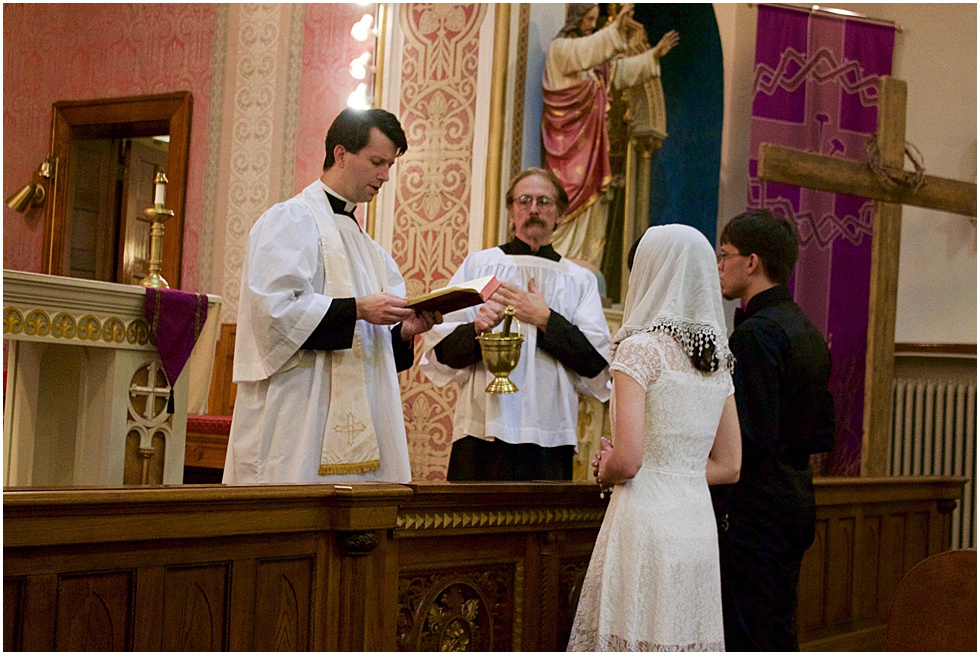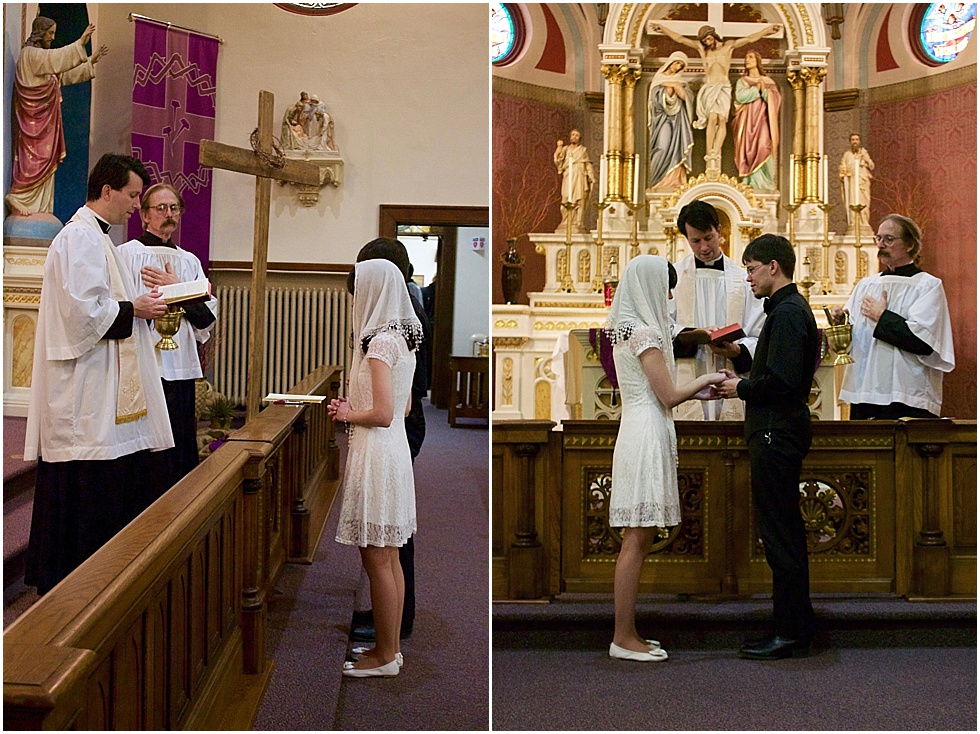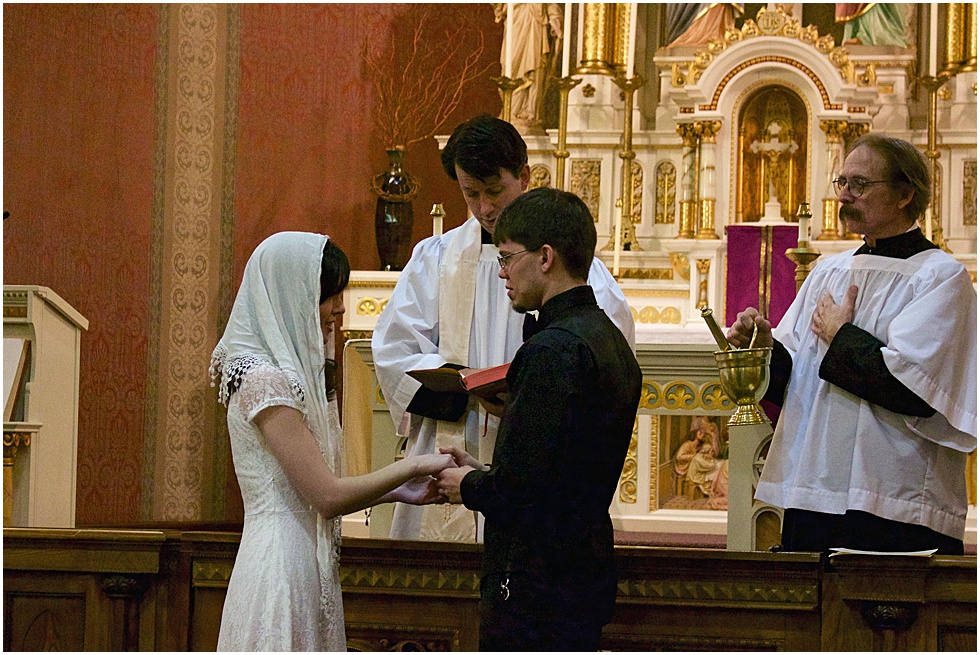When I told my husband Ben I was going to be writing about communication, he laughed. He knows me too well. Just the other day we got into an argument after he held up a blackened piece of toast, asking, “Is this too dark?”
It really had nothing to do with the toast. Ben thought he was doing something nice for his wife, and wanted to communicate that he cared about me and my toast preferences. But I heard the frustration in his voice after a tough evening, and thought that frustration was directed at me. There were so many other factors, so many minute (but important) details that turned what should have been a simple question into a half-hour argument.
While I have grown in my ability to communicate, especially in the ten months of our marriage, for me communication is the area of our relationship with the steepest learning curve.
When you get engaged, and then again when you enter into marriage, you quickly learn you need to communicate in ways you’ve never had to before. Your thoughts, your emotions, your words no longer just affect you. They profoundly and intimately affect your fiancé or spouse. It can be an exciting gift, to share so much of yourself with another, to be called to love someone in an entirely new way. But that doesn’t make it easy.
Early on, attempts to effectively communicate often lead to misunderstandings, arguments, and maybe even hurt feelings. It can frustrate us, and if you are anything like me, it sometimes leaves us wondering: Isn’t this supposed to be a happy time? Why does it seem like we are fighting all the time? Is there something wrong with our relationship?
Even in healthy relationships, communicating well is a challenge.
Cultivating effective communication skills is similar to cultivating an effective prayer life—it requires time and patience. But more importantly, it requires vulnerability and openness, humility and reverence, love and the knowledge that we are loved.
Christ himself taught us--through his coming to us as a newborn child and a broken sacrifice on an altar--that prayer begins with vulnerability. Prayer is able to go deeper when we approach God knowing who we are when we stand before him. When we are able to go to the Lord, knowing we are both sinners and his daughters, we willingly present our whole selves to be received by him.
Vulnerability, according to Dr, Brené Brown, “sounds like truth and feels like courage.” It means allowing ourselves to be received in our entirety. But how can someone receive what we are unable or unwilling to hold out to them? We first need to understand our inner selves—our emotions, our thoughts, our motives, our weakness, our wounds. We have to take an open, honest look and humbly see the many different facets of our beings—both our imperfections and, sometimes with even more difficulty, our strengths. We have to reflect on the ways in which these things have shaped us over the years and how they affect our moment-to-moment.
For example, in the Great Toast Argument, I needed to step back and reflect on why I had reacted to Ben’s words the way I did. I had been having an incredibly difficult week, and that night was the breaking point. In my reflection I saw that much of my frustration stemmed from insecurities I had developed over many years; the lies that told me I was not good enough. I needed to feel loved, but when I heard frustration, I panicked and took on a defensive stance.
It wasn’t until I was able to communicate all this to my husband that he began to understand my troubled heart. It wasn’t until I understood how I was feeling that I was able to communicate it to him. Only through self-knowledge are we free to really begin sharing our interior life with our spouse. However, all too often communication stops after this self-expression.
Communication is usually seen as expressing how we feel or what we think. And while that is an important aspect, it goes deeper than that.
Communication is just as much--if not more--about the other as it is about us. After all, what would prayer be if we never allowed for God to speak to us? For this reason, it demands reverence. This reverence first begins with our bodies. Prayer begins with putting ourselves in a position that encourages our mind to contemplate heavenly things. We generally don’t pray very well laying down in our cozy beds because it is hard to focus on what we are saying or on what God is trying to tell us. Kneeling or sitting upright in a chapel or in front of a religious image lends itself to much more fruitful prayer.
Similarly, our body language is important for effective communication. If we put our bodies in a position of receptivity, it makes our souls more open to receiving. Eye contact, uncrossed arms, standing with an open space or sitting upright on the edge of your seat, a nod of the head, an encouraging smile: these nonverbal signals make up even more of our communication than what is said. Our posture encourages listening and it helps the other person know that they are being listened to.
Listening is more than a means to an end; we are not listening merely to be able to respond. Prayer is more than just a one-way monologue; we are not simply speaking at God. It is a conversation with the Divine. Both sides speak, and when we speak we know the Lord listens —should we not return this act of love?
But more than likely, the Lord’s words are not heard with our ears but with our hearts. We understand more through thinking and feeling than we do through our sense of hearing, and we come to a deeper knowledge of who God is and who we are in that process.
Conversations with our spouse should be similar: seeking to understand and to listen well. In our argument, instead of asking my husband why he was frustrated, I assumed it was directed at me and, in my own frustration, lashed out. Only when I finally listened to him, and tried to understand his side, was I able to see how my own personal struggles also affect my husband deeply. I was able to see his love for me manifested in his taking on my own suffering. When we listen to others, especially our spouse, we create a space for them in our hearts. We allow ourselves to more intimately enter into their lives, into their pain, their excitement, their sorrows, their joys. We begin to know and can even feel as they do.
Finally, as in all prayer, we look to Christ on the cross as our example and as our source of grace.
He came to us with utter vulnerability, hanging broken on the cross, and allowed us to receive his very life which poured out from his open wounds. He listened to the broken and troubled heart of his Beloved and because he listened. He took on our pain.
And in all of this, his message from the cross was clear. It is the same message we must communicate to our spouse in all we do and say: Let every word, every breath tenderly, and silently speak the words I love you.
















































